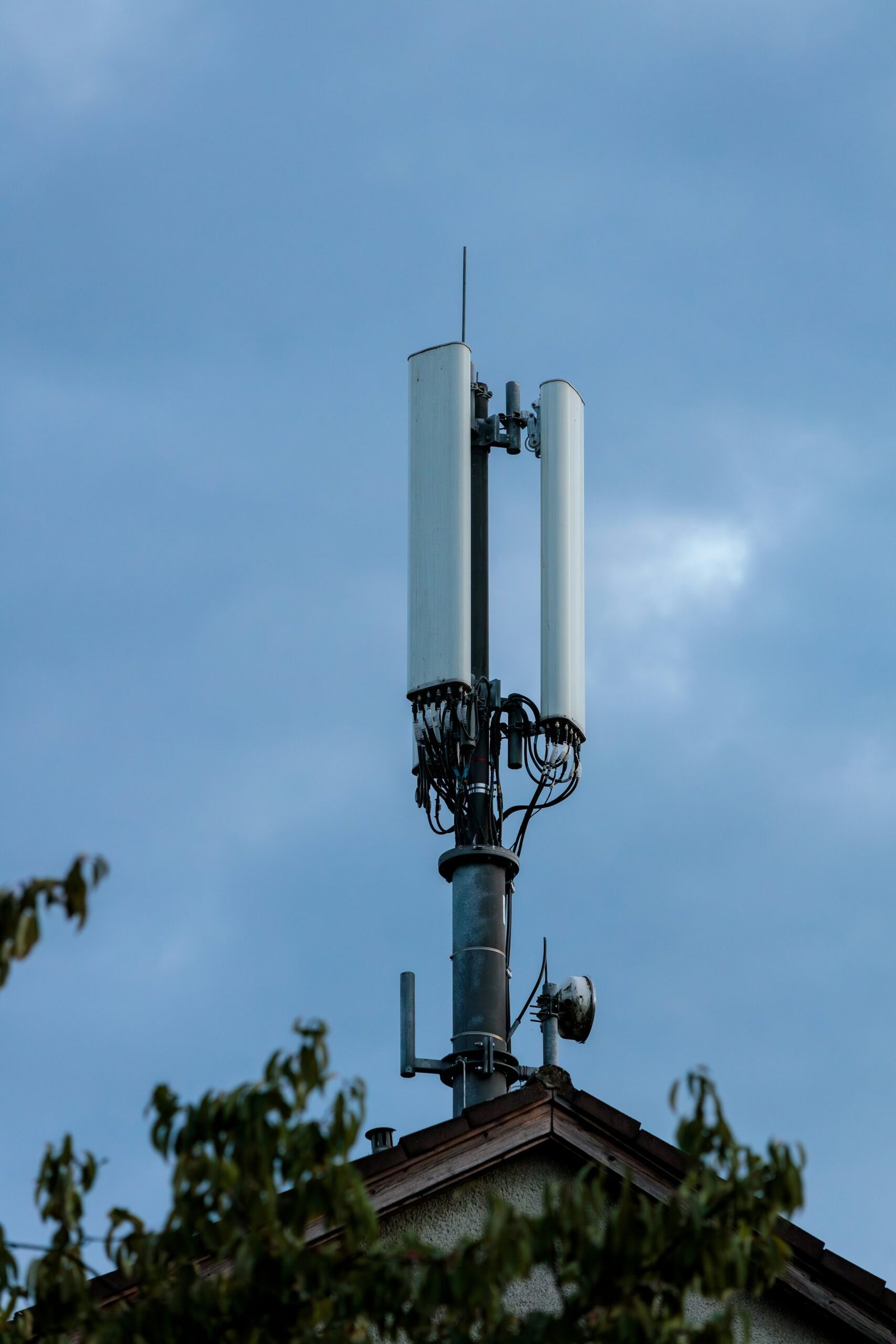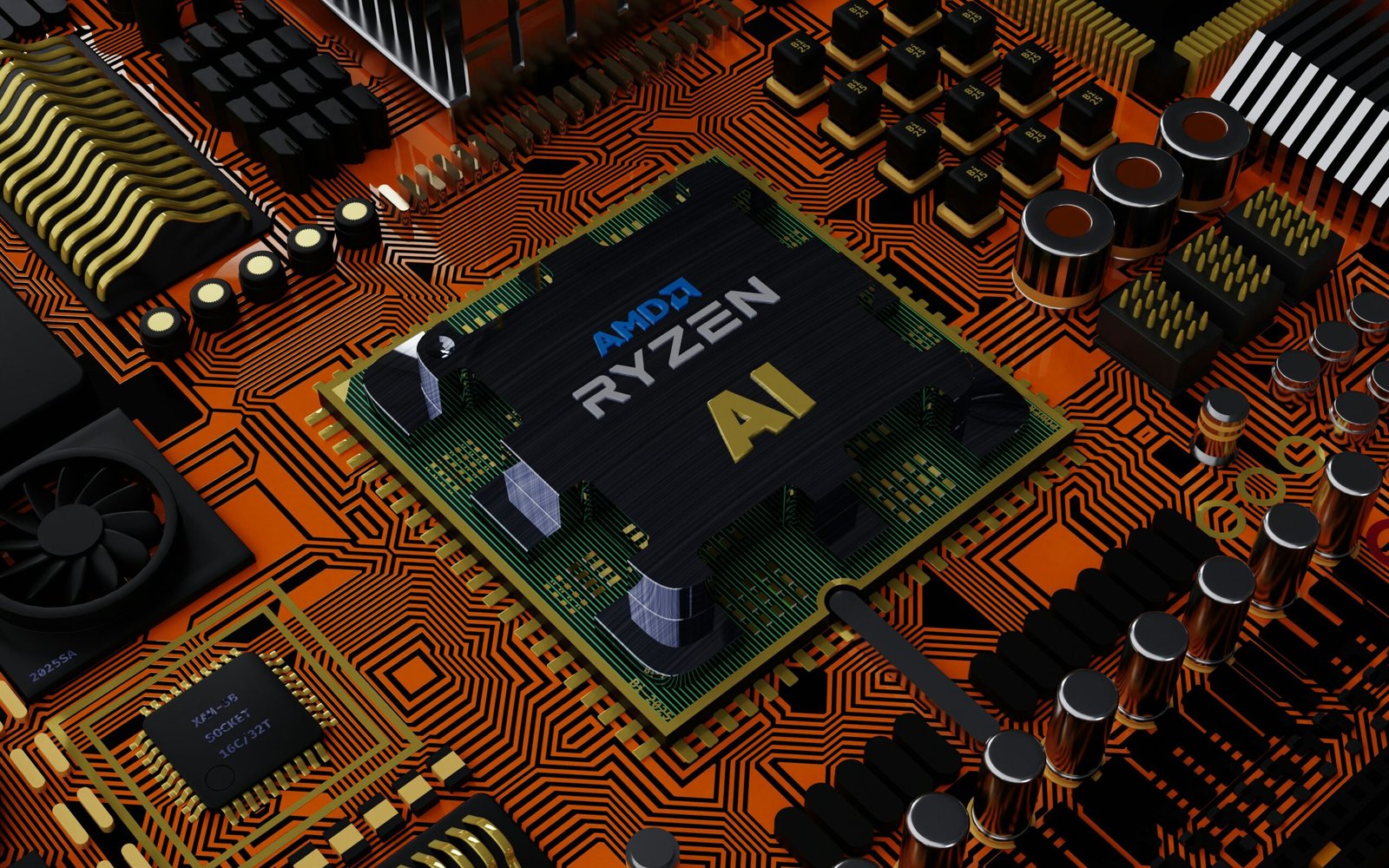Beyond Cryptocurrency: Unveiling the Real-World Applications of Blockchain Technology Across Sectors

Introduction to Blockchain Technology
Blockchain technology, originally conceptualized as the underlying structure for the cryptocurrency Bitcoin, has evolved into a revolutionary framework with potential applications far beyond digital currencies. Born out of the need for more secure and transparent transaction methods, blockchain is fundamentally a decentralized ledger that records transactions across multiple computers in such a manner that the registered transactions cannot be altered retroactively.
At its core, blockchain technology utilizes a chain of blocks, where each block contains a list of transactions. These blocks are linked and secured using cryptographic hashes. The decentralization aspect stems from the fact that this ledger is maintained not by a single central authority but by a network of nodes, each holding an identical copy of the ledger. This decentralized structure ensures transparency, as every participant in the network can view the entire ledger at any time, yet it achieves security and integrity through consensus mechanisms and cryptographic security.
One of the most groundbreaking innovations brought by blockchain technology is its ability to facilitate trustworthiness in environments where trust is traditionally hard to establish. In a blockchain network, each transaction must be validated by the network through consensus algorithms such as Proof of Work (PoW) or Proof of Stake (PoS), ensuring that once a transaction is added to the blockchain, it is extremely difficult to tamper with. This built-in trust mechanism makes blockchain an incredibly secure and tamper-evident system.
While blockchain gained initial recognition through its association with cryptocurrencies, its principles of decentralization, transparency, and security are applicable to a myriad of real-world applications. From supply chain management and healthcare to voting systems and intellectual property rights, the potential for blockchain to disrupt traditional sectors and enhance efficiency is vast. As we delve deeper into the various sectors leveraging blockchain technology, it is clear that this innovation is poised to redefine the landscape of numerous industries.
Blockchain in Supply Chain Management
Blockchain technology is revolutionizing supply chain management by introducing unprecedented levels of transparency and efficiency. At its core, blockchain’s decentralized ledger system ensures that all participants in the supply chain have access to an immutable record of transactions. This development has significant implications for product traceability, provenance verification, and real-time tracking.
For instance, in the food industry, blockchain can be employed to trace the journey of agricultural products from farm to table. This ensures that each step of the food supply chain is documented, reducing risks of contamination and fraudulent activities. Transparency in the supply chain is not only beneficial for consumers but also for regulatory bodies and businesses looking to ensure compliance and quality control.
Similarly, pharmaceuticals can greatly benefit from blockchain applications. Counterfeit medications are a persistent problem in the industry, but blockchain’s ability to provide a verifiable history of drug production and distribution can mitigate these risks. Consumers and healthcare providers can authenticate the origin and journey of pharmaceuticals, ensuring safety and efficacy.
The luxury goods sector is yet another area where blockchain is making significant strides. High-value items such as diamonds, artwork, and designer products are frequently subject to counterfeit issues. By using blockchain to authenticate the provenance and ownership history of these items, stakeholders can offer higher levels of assurance to consumers, thereby adding value and trust to their brands.
Moreover, real-time tracking facilitated by blockchain allows companies to monitor their inventory and shipments with greater accuracy and efficiency. Shipping and logistics firms can use blockchain ledgers to record checkpoints and transit data, ensuring that all stakeholders are promptly informed about the status of goods.
These advancements are transforming supply chains across industries, demonstrating the versatile applications of blockchain technology beyond its initial conception as a foundation for cryptocurrencies. As more sectors begin to adopt this groundbreaking technology, we can expect continued improvements in traceability, efficiency, and transparency within global supply chains.
Applications in Healthcare
Blockchain technology is making significant strides in the healthcare sector, bringing transformative changes to areas such as patient data management, interoperability of medical records, and drug traceability. One of the most critical applications is the secure management of patient information. Utilizing blockchain for managing patient data ensures robust security and privacy due to its immutable nature. Each piece of data is encrypted and stored across decentralized nodes, making unauthorized access and tampering virtually impossible. This not only protects sensitive patient information but also enhances trust within the healthcare ecosystem.
Another prominent application of blockchain in healthcare is the interoperability of medical records. Traditionally, patient records are siloed in disparate systems, making it challenging for different healthcare providers to access and share crucial information. Blockchain technology can address this issue by creating a unified, immutable ledger of patient information that authorized personnel can easily access, regardless of their location. This seamless access to comprehensive medical records can lead to improved diagnostics, more effective treatment plans, and better patient outcomes.
Furthermore, blockchain plays a vital role in enhancing drug traceability and combatting counterfeit medications. The pharmaceutical supply chain is complex, often involving multiple intermediaries, which can result in vulnerabilities and inefficiencies. Blockchain can provide a transparent and tamper-proof record of every transaction within the supply chain, from manufacturing to delivery. This ensures that the authenticity of medications can be verified at every stage, reducing the risk of counterfeit drugs entering the market and safeguarding patient health.
Real-world implementations of blockchain in healthcare include systems like the MediLedger Project, which aims to create an interoperable blockchain network for the pharmaceutical industry, ensuring compliance with regulatory requirements and enhancing overall drug security. Another example is Estonia’s e-Health Foundation, which uses blockchain technology to maintain the integrity of patient health records, fostering trust and confidence in the healthcare system.
“`html
Blockchain for Financial Services Beyond Cryptocurrencies
Blockchain technology is revolutionizing traditional financial services by offering a streamlined, secure, and cost-effective alternative to conventional methods. One of the most notable applications of blockchain in the financial sector is in banking. Blockchain facilitates real-time processing and settlement of transactions, significantly reducing the transaction time and cost. This technology ensures transparency and minimizes the risk of fraud, as every transaction is recorded on an immutable ledger.
In asset management, blockchain helps in automating and enhancing operations through the use of smart contracts. These self-executing contracts ensure that all the terms and conditions are met, thereby reducing the need for intermediaries and decreasing associated costs. Moreover, blockchain’s ability to provide a transparent and tamper-proof record contributes to improved trust and accountability among stakeholders.
The insurance sector is also experiencing a transformation due to blockchain technology. Utilizing blockchain, insurance companies can efficiently manage claims, automate underwriting, and detect fraudulent activities. Smart contracts in insurance can ensure that claims are processed automatically when predefined conditions are met, leading to faster and more accurate settlements. This improves customer satisfaction and operational efficiency.
Cross-border payments traditionally involve high fees and lengthy processing times due to the involvement of multiple intermediaries. Blockchain technology simplifies this process by eliminating intermediaries, thereby reducing transaction costs and enabling near-instantaneous fund transfers. This is particularly beneficial for remittances and international trade, where time and cost efficiency are crucial. Additionally, blockchain enhances security for cross-border transactions by using cryptographic techniques to protect data.
Overall, blockchain technology offers myriad benefits to the financial services industry, including reduced transaction costs, faster settlement times, and improved security. As the technology continues to mature and gain wider acceptance, its role in reshaping the financial landscape will only become more pronounced, heralding a new era of efficiency, transparency, and trust in financial services.
“`
Transforming Voting Systems and Governance
Blockchain technology is poised to revolutionize voting systems and governance by offering transparent and tamper-proof mechanisms. Traditional voting systems are often criticized for their vulnerability to fraud, inefficiencies, and lack of transparency. Blockchain, with its decentralized and immutable nature, can address these issues by ensuring that every vote is verifiable, and the entire process is transparent.
One notable example of blockchain’s potential in this sphere is the implementation of digital voting. Digital voting on a blockchain can provide end-to-end verifiability, allowing voters to confirm that their vote was cast and counted correctly without compromising the anonymity of their ballot. This technology has already been piloted in various parts of the world. For instance, Estonia, a pioneer in digital innovation, has experimented with blockchain-based voting to enhance the security and integrity of its elections. Similarly, West Virginia in the United States piloted a blockchain voting system for military personnel stationed abroad during the midterm elections, showcasing the feasibility of this technology in a real-world scenario.
Beyond voting, blockchain also holds promise for enhancing public governance through Decentralized Autonomous Organizations (DAOs). DAOs can streamline administrative processes by embedding governance rules in smart contracts, enabling automated and transparent decision-making. These organizations run on blockchain and are governed by members through a token-based voting system, ensuring that no single entity has disproportionate control. Examples like Aragon and DAOstack showcase how DAOs can provide a more democratic and transparent organizational structure, potentially serving as a model for public governance.
In conclusion, the integration of blockchain into voting systems and public governance can enhance transparency, reduce fraud, and streamline administrative processes. While these technologies are still in the experimental phase, the potential benefits suggest a promising future where governance is more efficient and trustworthy.
Blockchain in Real Estate
Within the real estate sector, the adoption of blockchain technology is poised to bring about significant improvements in various areas, such as property transactions, title management, and due diligence processes. By leveraging the immutable and transparent nature of blockchain, stakeholders in the real estate market can address long-standing issues related to fraud, efficiency, and market visibility.
One of the most prominent applications of blockchain in real estate is the facilitation of property transactions. Traditional processes are often hindered by a slew of intermediaries, paperwork, and extended timeframes, leading to delays and elevated transaction costs. Blockchain can streamline these transactions by directly connecting buyers and sellers through decentralized platforms. Smart contracts, self-executing contracts with the terms of the agreement directly written into code, ensure that property transfers are consummated only when all requisite conditions are fulfilled. This eliminates the need for intermediaries and significantly shortens the transaction timeline.
Title management is another critical area where blockchain demonstrates substantial potential. The current system of recording and verifying property titles is notoriously susceptible to errors, fraud, and data tampering. Blockchain technology offers a secure and transparent method of recording ownership details, ensuring that each piece of information added to the digital ledger is immutable and verifiable. This not only simplifies the title verification process but also minimizes the risk of fraudulent claims, disputes, and discrepancies.
Due diligence, an essential procedure for any real estate transaction, often involves extensive background checks and verification of the property’s legal, regulatory, and financial standing. Blockchain can expedite due diligence by consolidating and securely storing all pertinent information on a decentralized ledger. The transparency and accessibility of blockchain data enable quicker and more comprehensive assessments, thus enhancing the due diligence process’s overall efficiency and reliability.
Ultimately, blockchain technology ushers in improved transparency and liquidity in real estate markets. By providing a uniform and tamper-proof record-keeping system, blockchain diminishes uncertainties and engenders greater trust among investors. This augmented trust can attract a wider pool of participants, potentially increasing market liquidity and fostering a more vibrant real estate sector.
Enhancing Cybersecurity
Blockchain technology, initially conceived as the foundation for cryptocurrencies, has transcended its origins to become a pivotal force in enhancing cybersecurity. One of the core strengths of blockchain is its decentralized data storage system, which diverges from traditional centralized databases. This decentralization means that data is distributed across multiple nodes, making it significantly harder for cybercriminals to target a single point of failure. Even if one node is compromised, the integrity of the data remains intact owing to the consensus mechanism inherent in blockchain networks.
In addition to its decentralized nature, blockchain employs robust encryption methods. Every transaction or piece of information stored on the blockchain is encrypted and linked to the previous transactions, creating an immutable chain. This immutability ensures that once data is entered, it cannot be altered or tampered with, providing an additional layer of security. The encryption algorithms used in blockchain are state-of-the-art, often surpassing those found in traditional cybersecurity measures.
Another profound application of blockchain technology lies in secure identity verification. Traditional identity management systems are prone to breaches, leaving sensitive personal data vulnerable. Blockchain offers a secure and efficient alternative by allowing individuals to manage their digital identities through a decentralized system. This not only enhances privacy but also reduces the risk associated with password-based authentication systems. For instance, a blockchain-based digital identity can be used for secure login processes without exposing the actual credentials to potential hackers.
Furthermore, blockchain technology is increasingly being applied to secure Internet of Things (IoT) devices. The interconnectedness of IoT devices raises significant security concerns, as each connected device becomes a potential entry point for attackers. By integrating blockchain, these devices can achieve secure communication through tamper-proof and decentralized networks. This ensures that the data exchanged between devices is not only encrypted but also verified by multiple nodes, significantly mitigating the risk of unauthorized access.
Protecting sensitive data and preventing data breaches are continuous challenges in the cybersecurity landscape. Blockchain technology, with its combination of decentralized data storage, robust encryption, and secure identity verification, offers innovative solutions to these enduring problems. As the adoption of blockchain in cybersecurity continues to evolve, it promises to fortify the defenses in an increasingly digital world.
Future Prospects and Challenges
As we venture into the future of blockchain technology, its potential to reshape various sectors remains immense. However, several challenges need addressing to fully realize its capabilities. One of the primary concerns is scalability. Current blockchain networks face limitations regarding transaction speeds and throughput, which can hinder their capacity to support large-scale applications. To overcome these hurdles, ongoing research into scalability solutions, including sharding and layer-2 protocols, is crucial.
Regulatory hurdles also pose significant challenges to blockchain adoption. Governments and regulatory bodies worldwide are grappling with establishing frameworks that balance innovation with consumer protection and financial stability. Achieving a harmonized regulatory environment that fosters trust and compliance while encouraging innovation is essential for the widespread acceptance of blockchain technology. In this regard, collaboration between the private sector, policymakers, and researchers will be pivotal.
Another challenge is the high energy consumption associated with certain blockchain protocols, particularly proof-of-work-based networks. The environmental impact of blockchain technology has garnered considerable attention, leading to the exploration of more sustainable consensus mechanisms. Emerging alternatives, such as proof-of-stake and hybrid models, offer promising pathways to enhance the energy efficiency of blockchain systems without compromising security.
Despite these challenges, the future of blockchain technology holds several promising trends and innovations. The integration of blockchain with emerging technologies like artificial intelligence, the Internet of Things (IoT), and quantum computing is expected to unlock new possibilities and applications. Furthermore, the evolution of decentralized finance (DeFi) and non-fungible tokens (NFTs) showcases the expanding use cases beyond traditional financial services, offering novel approaches to asset management, ownership, and value exchange.
The ongoing advancements and collaborative efforts within the blockchain ecosystem promise a dynamic future where this technology can bring transformative impacts across various sectors. By addressing the existing challenges proactively and embracing the opportunities ahead, blockchain technology is poised to drive significant progress and innovation in the years to come.




